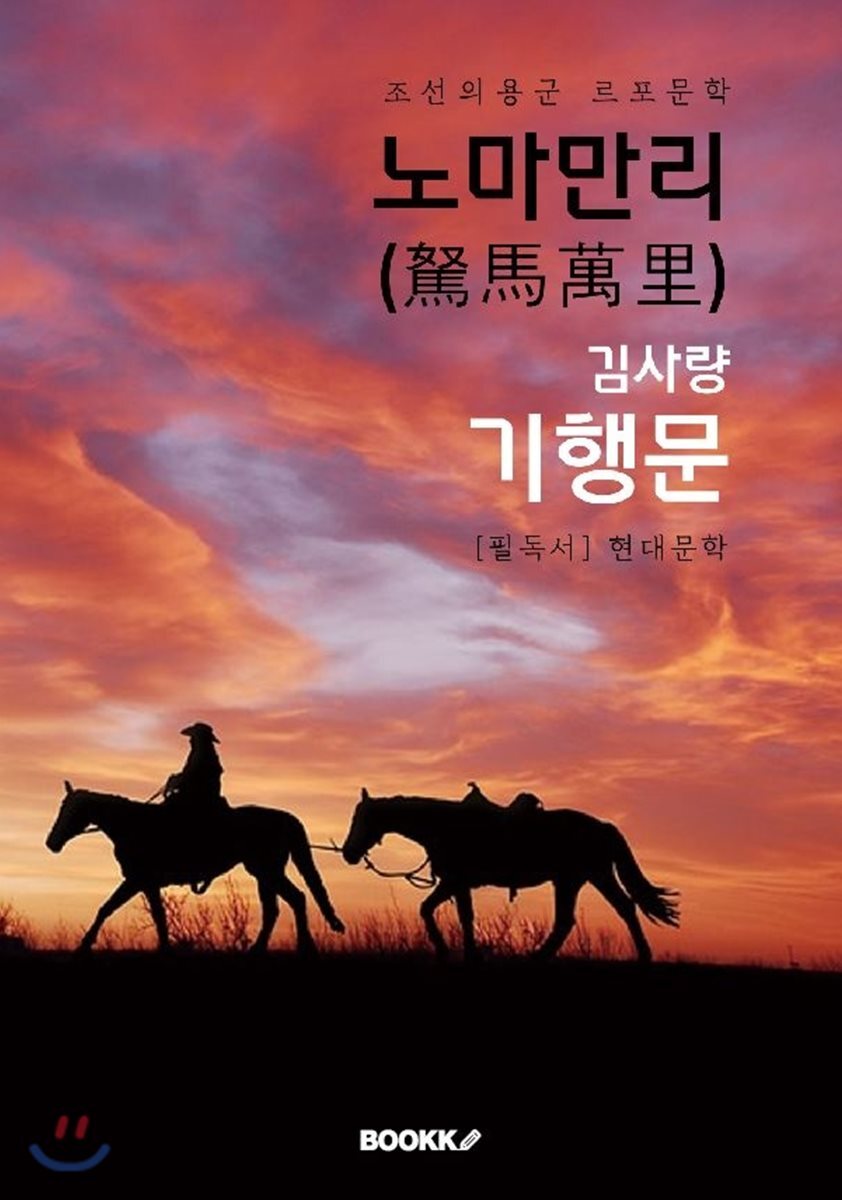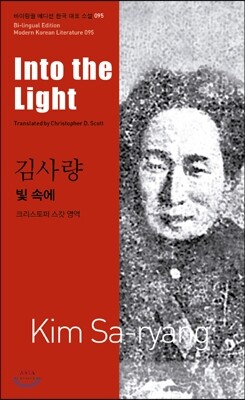-
김사량 작품집
Gimsaryang jakpumjip
Korean(한국어) Printed/Published WorkKim Sa-ryang / 김사량 / - / KDC구분 > literature > Korean Literature > Complete Collection > Library > Complete Collection (individual)
-
김사량전집
Gimsaryangjeonjip
Korean(한국어) Printed/Published WorkKim Sa-ryang / 김사량 / - / KDC구분 > literature > Korean Literature > Complete Collection > Library > Complete Collection (individual)
-
노마만리
Nomamalli
Korean(한국어) Printed/Published WorkKim Sa-ryang / 김사량 / 2018 / KDC구분 > literature > Korean Literature > Diary > Letter > Travelogue
This is a novel, serialized in Minseong from January 1946 to July 1947. It tells the story of the author Kim Sa-ryang’s journey from Pyongyang to Namjang Village in the Taihang Mountains, which was the base of Korean volunteer army’s anti-Japanese activities. It was published in the book form in 1947 but remains incomplete.
-
대오는 태양을 향하여
Daeoneun taeyangeul hyanghayeo
Korean(한국어) Printed/Published WorkKim Sa-ryang / 김사량 / - / KDC구분 > literature > Korean Literature > Korean Fiction > 20th century > Short Story
는 1945년 이후 월북한 소설가 김사량의 단편소설로 발표한 지면과 시기는 알려지지 않았다. 다만 1987년 북한의 평양문예출판사에서 출간한 (이명호편저)과 1992년 한국에서 출간한(김재남엮음)에 해당 작품이 수록되어 있다.
-
바다가 보인다
Badaga boinda
Korean(한국어) Printed/Published WorkKim Sa-ryang / 김사량 / - / KDC구분 > literature > Korean Literature > Diary > Letter > Travelogue
1950년 6월26일부터 1950년 7월까지 에 발표했던 소설가 김사량의 종군기(從軍記)다. 서울, 수원, 대전, 낙동강, 마산 등으로 이동하며 기록했던 글을 발표한 것인데, 북한에서는 "조국해방전쟁 제1단계의 생동한 역사"로 평가한 바 있다.
-
빛 속에
Bin soge
Korean(한국어) Printed/Published WorkKim Sa-ryang / 김사량 / 2015 / KDC구분 > literature > Korean Literature > Korean Fiction > 20th century > Short Story
This is a short story by Kim Sa-ryang, which was nominated for the 6th Akutagawa Prize in 1940. It addresses the issue of “mixed race” in the Japanese colonial period and Korean intellectuals struggling with national contempt and oppression
Original Works
We provide information on Korean literature titles (classical, modern and contemporary) in multiple languages.




